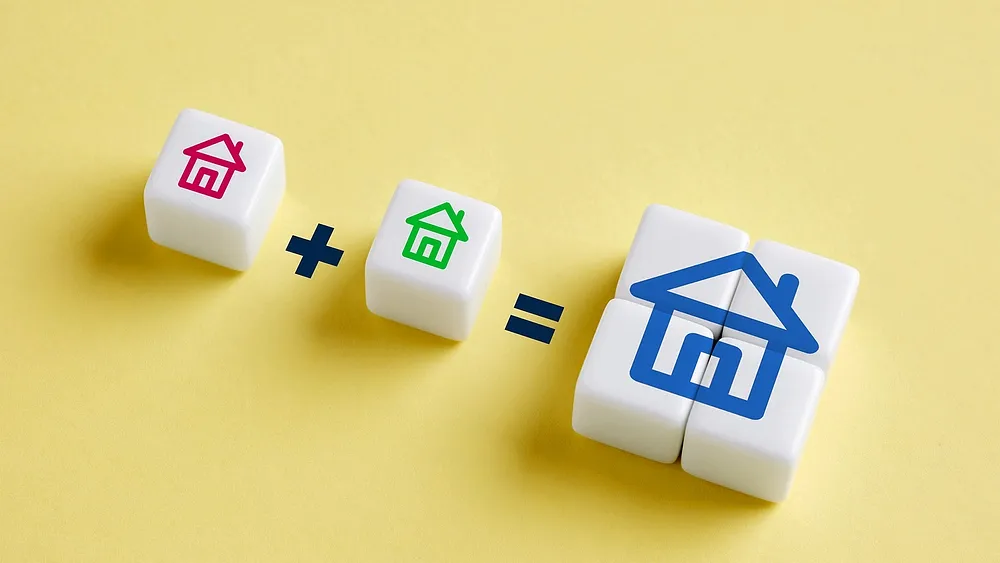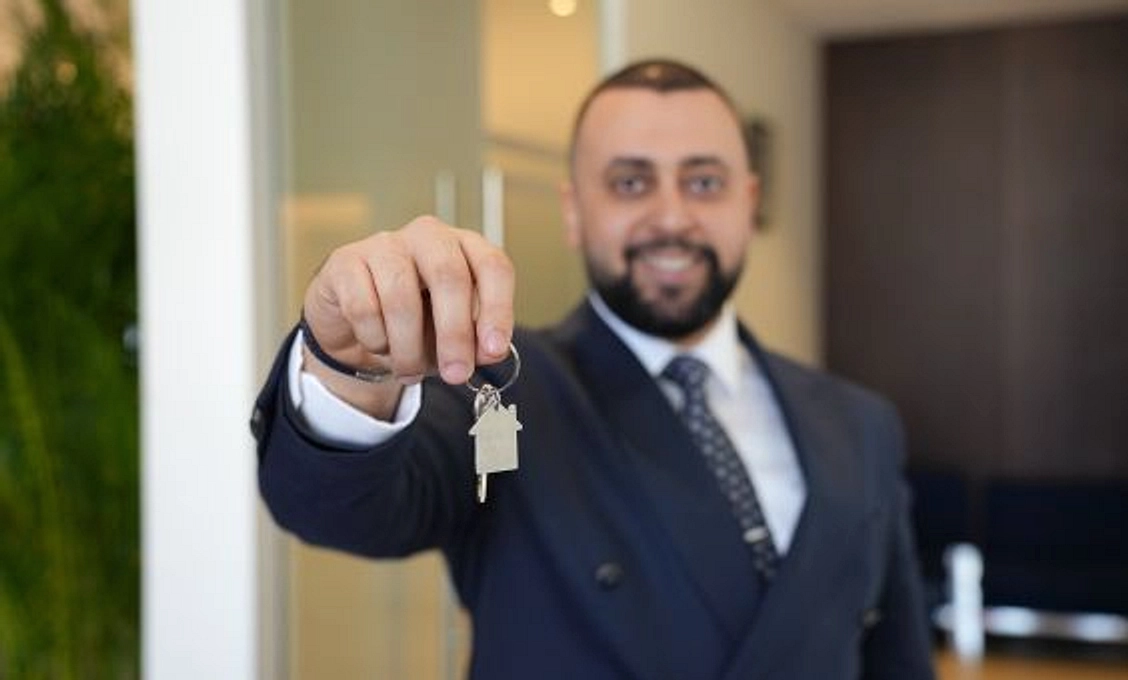Signature Collection
Explore SignatureCan I have two mortgages on one property? This is a common question for homeowners and investors in Dubai seeking ways to maximize their property’s potential. The answer lies in the type of mortgage you want to pursue, as well as your financial strategy.
In Dubai, you can potentially take out a second charge mortgage, which allows you to borrow against the equity you’ve built in your property. However, multiple mortgages on one home require careful planning and compliance with specific legal and financial regulations. This guide explores whether you can have two mortgages on one house, the legal implications, the difference between mortgage refinancing vs. second mortgage, and the benefits of equity mortgage options.
Understanding Second Mortgages on One Property
A second mortgage on one property, often called a second charge mortgage, allows homeowners to borrow against the equity of their existing property without refinancing the original mortgage. This is useful for those who need additional funding but prefer to leave their primary mortgage unchanged. The second lender will place a secondary charge on the property, meaning the second mortgage will only be paid after the first lender is satisfied, should the borrower default.
Multiple Mortgages on One Home: Is It Legal in Dubai?
In Dubai, the law permits homeowners to have multiple mortgages on one home, subject to specific conditions. A second charge mortgage can be legally registered if the first lender agrees to the arrangement and the property has sufficient equity to support a second loan. Both mortgages are registered with the Dubai Land Department (DLD), ensuring that lenders have their interests protected.
It is crucial to note that the UAE Central Bank regulates mortgage financing, and lenders must comply with its guidelines. The DLD requires a NOC (No Objection Certificate) from the first lender, approving the registration of a second mortgage on the same property. This legal safeguard ensures that the property remains within the borrower’s ability to service both loans.

Two Mortgages, One House: How Does It Work?
When you have two mortgages on one house, the process typically involves the following: the first mortgage is secured at the time of purchase, and a second mortgage is taken out later, based on the accumulated equity in the property. For example, if your property’s value has increased or you have made significant repayments on your first loan, the equity you own can be used as collateral for the second mortgage.
Both home loans are tied to the same property, but the first lender retains primary security over the asset. The second lender will only have claim over the property after the first lender is fully paid, which adds a layer of risk for the second mortgage provider. As a result, second charge mortgages often come with higher interest rates.
Equity Mortgage Options: Unlocking Your Property’s Value
Equity mortgage options are an effective way to access funds without selling your property. These options allow homeowners to take out loans against the value they have accumulated through repayments or market appreciation. In Dubai, equity mortgages are popular among investors and homeowners looking to renovate, invest in other properties, or consolidate debts.
When choosing between a second charge mortgage or mortgage refinancing, it’s important to assess your financial goals. If your primary mortgage has a favorable interest rate, a second mortgage may be preferable to refinancing. However, if interest rates have dropped significantly since your first loan, refinancing could be a better option.
Mortgage Refinancing vs. Second Mortgage: Which Is Better?
Mortgage refinancing and second mortgages are two distinct strategies for managing home loans. With mortgage refinancing, homeowners replace their existing loan with a new one, often to secure better terms or consolidate debt. In contrast, a second mortgage adds a new loan on top of the original one, without altering the terms of the first mortgage.
In Dubai, the choice between mortgage refinancing vs. second mortgage depends on several factors, including the interest rates, repayment flexibility, and loan purpose. Refinancing is suitable for those looking to reduce monthly payments or switch to a fixed-rate loan. On the other hand, a second mortgage is ideal for homeowners who need immediate cash without modifying the original mortgage.
Legal Considerations for Multiple Mortgages in Dubai
Navigating the legal landscape for multiple mortgages on one home requires understanding the UAE’s mortgage laws. The Dubai Land Department mandates that all mortgages, including second mortgages, be registered with the department. Additionally, a NOC from the first lender is required to protect the interests of both lenders and borrowers.
The UAE Central Bank imposes guidelines on the loan-to-value (LTV) ratio, which limits how much a borrower can lend based on the property’s market value. For second mortgages, lenders typically require a lower LTV to mitigate their risk. Additionally, borrowers must provide proof of financial stability and the ability to service both loans.
Another legal aspect to consider is the impact of multiple mortgages on resale. If the property is sold, both the primary and secondary mortgages must be cleared before the ownership transfer can be registered. Buyers and sellers should work closely with real estate agents and legal advisors to ensure a smooth transaction.
Benefits of Two Mortgages on One Property
There are several advantages to taking out a second charge mortgage on your property in Dubai. Homeowners can access substantial funds for personal or investment purposes, without disrupting their primary mortgage terms. Additionally, using equity mortgage options allows borrowers to leverage the value of their property while retaining ownership.
Homeowners should carefully assess their financial situation and consider consulting with mortgage advisors to determine whether a second mortgage aligns with their long-term financial goals.
Risks of Having Two Mortgages on One Property
While taking out a second mortgage can provide financial flexibility, it also comes with potential risks that homeowners should carefully consider:
- Higher Interest Rates: Second mortgages typically have higher interest rates compared to primary mortgages due to the increased risk for lenders.
- Increased Debt Obligation: Managing two mortgages means a higher monthly financial burden, which can impact your cash flow and long-term financial stability.
- Risk of Foreclosure: If you default on your payments, the first lender has priority in recovering the debt, making it more challenging for second mortgage lenders to reclaim funds.
- Limited Loan-to-Value Ratio (LTV): The UAE Central Bank enforces strict LTV regulations, meaning you may not be able to borrow as much as anticipated, limiting the funds available through a second mortgage.
Before proceeding with a second mortgage, it is crucial to seek financial advice from Provident’s expert agents to ensure it aligns with your investment strategy.
When considering two mortgages on one house, it is essential to compare equity mortgage options, assess the advantages of mortgage refinancing vs. second mortgage, and consult legal advisors to ensure compliance with UAE regulations. With the right strategy, a second mortgage can unlock your property’s potential and provide the financial flexibility you need to achieve your goals.
FAQs
Yes, many homeowners use second mortgages to finance new property investments, leveraging the equity in their existing property to secure funds without selling it.
Second charge mortgages usually carry higher interest rates than primary mortgages due to the increased risk for lenders, but rates vary depending on the borrower’s credit profile and market conditions.
Taking out a second mortgage can impact your credit score, as it increases your debt obligations. Timely repayments are essential to maintain a healthy credit score.
Yes, it is possible to refinance the first mortgage without affecting the second one, but you will need the second lender’s consent to restructure the loans.
You will typically need to provide your Emirates ID, proof of income, bank statements, property ownership documents, and a No Objection Certificate (NOC) from the primary lender.
Yes, you can take out a second mortgage on your property if you have sufficient equity and your first lender provides a No Objection Certificate (NOC). However, the second mortgage will typically have higher interest rates, and lenders will assess your financial stability before approval.
No, in Dubai, a second mortgage cannot be registered unless the first lender issues a No Objection Certificate (NOC). Without this approval, you will not be able to take out a second mortgage on the same property.
If you decide to sell your property, both the primary and secondary mortgages must be cleared before ownership can be transferred. The proceeds from the sale will first go toward settling the first mortgage, and any remaining amount will then be used to repay the second mortgage.
The amount you can borrow depends on your property’s equity and the loan-to-value (LTV) ratio set by the UAE Central Bank. Typically, lenders offer lower LTV ratios for second mortgages to mitigate risks.
Yes, in some cases, you can refinance your second mortgage independently of your primary mortgage. However, this depends on lender policies and market conditions, so it is advisable to compare refinancing options before making a decision.
For more information, get in touch with us at Provident
 Apartments
Apartments Villas
Villas Townhouses
Townhouses Penthouses
Penthouses Commercial
Commercial See All Properties
See All Properties Commercial
Commercial Property Management
Property Management List Your Property
List Your Property Mortgages
Mortgages Conveyancing
Conveyancing Short Term Rentals
Short Term Rentals Property Snagging
Property Snagging Partner Program
Partner Program Currency Exchange
Currency Exchange PRYPCO
PRYPCO Ethnovate
Ethnovate Plots
Plots
